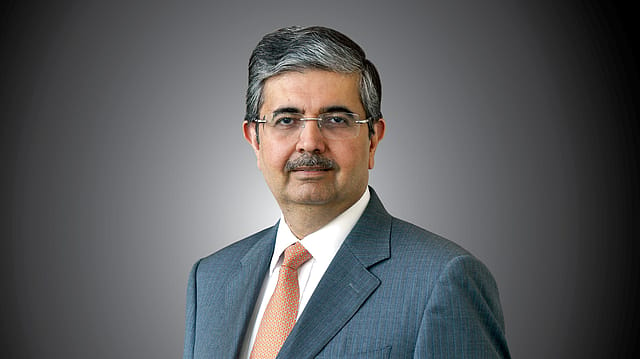India must nurture strong financial institutions: Uday Kotak on U.S. bank failures
ADVERTISEMENT

Asia's richest banker Uday Kotak lauded the way JP Morgan Chase rescued the failed First Republic Bank in the United States, saying this highlights strong domestic financial institutions in the U.S. with significant capital and capable leadership.
"India too must nurture strong institutions backed by reliable domestic capital," the Kotak Mahindra Bank CEO wrote in a tweet.
On Monday, JP Morgan Chase acquired the substantial majority of assets and assumed the deposits and certain other liabilities of First Republic Bank from the Federal Deposit Insurance Corporation (FDIC).
"In carrying out this transaction, JPMorgan Chase is supporting the U.S. financial system through its significant strength and execution capabilities," the U.S. lender said, adding it is assuming all deposits – insured and uninsured – as part of the purchase.
The development comes weeks after U.S. regulators closed Signature Bank, just days after shutting down Silicon Valley Bank, following mass withdrawals of customer deposits.
January 2026
Netflix, which has been in India for a decade, has successfully struck a balance between high-class premium content and pricing that attracts a range of customers. Find out how the U.S. streaming giant evolved in India, plus an exclusive interview with CEO Ted Sarandos. Also read about the Best Investments for 2026, and how rising growth and easing inflation will come in handy for finance minister Nirmala Sitharaman as she prepares Budget 2026.
"Our government invited us and others to step up, and we did," said Jamie Dimon, chairman and CEO of JPMorgan Chase. "Our financial strength, capabilities and business model allowed us to develop a bid to execute the transaction in a way to minimize costs to the Deposit Insurance Fund," Dimon added.
As of April 13, 2023, First Republic Bank had around $229.1 billion in total assets and $103.9 billion in total deposits.
As part of the deal, JP Morgan Chase will acquire the substantial majority of First Republic Bank’s assets, including approximately $173 billion of loans and approximately $30 billion of securities.
The Federal Deposit Insurance Corporation (FDIC) of the U.S. will provide loss share agreements covering acquired single-family residential mortgage loans and commercial loans, as well as $50 billion of five-year, fixed-rate term financing. The loss–share transaction is projected to maximise recoveries on the assets by keeping them in the private sector. FDIC estimates that the cost to the Deposit Insurance Fund will be about $13 billion.
According to JP Morgan Chase, the transaction is expected to be modestly EPS accretive and generate more than $500 million of incremental net income per year, not including the approximately $2.6 billion one-time post-tax gain or approximately $2 billion of post-tax restructuring costs expected over the course of 2023 and 2024.
Kotak, whose net worth stood at ₹1,07,355 crore in 2022, launched Kotak Mahindra Finance in 1985, backed by a small loan from family and close friends, including Mahindra group chairman Anand Mahindra. It went on to become the first non-banking financial company (NBFC) to receive a banking licence from the Reserve Bank of India (RBI) in 2003, leading to the launch of Kotak Mahindra Bank.
